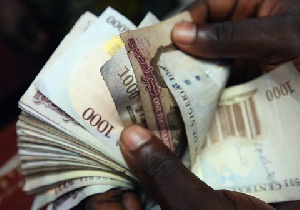The International Monetary Fund, IMF, yesterday reiterated its forecast that Nigeria's economy, as measured by the Gross Domestic Product (GDP), will grow by 2.5 percent in 2020.
The IMF stated this in its January World Economic Outlook (WEO) released yesterday, titled, "Tentative Stabilization, Sluggish Recovery".
The IMF had earlier projected in its October 2019 WEO that Nigeria's economy will grow by 2.5 percent in 2020.
But, the IMF in the January 2020 WEO downgraded its growth forecast for Sub Saharan African region to 3.5 percent citing constrains and deteriorating public finance in South Africa.
"In sub-Saharan Africa, growth is expected to strengthen to 3.5 percent in 2020-21 (from 3.3 percent in 2019). The projection is 0.1 percentage point lower than in the October WEO for 2020 and 0.2 percentage point weaker for 2021. This reflects downward revisions for South Africa (where structural constraints and deteriorating public finances are holding back business confidence and private investment) and for Ethiopia (where public sector consolidation, needed to contain debt vulnerabilities, is expected to weigh on growth)", the IMF said.
Similarly, the IMF however downgraded its growth forecast for the global economy to 3.3 percent in 2020, representing a one percentage point decline from 3.4 percent forecast made in October last year.
It stated: "Global growth, estimated at 2.9 percent in 2019, is projected to increase to 3.3 percent in 2020 and inch up further to 3.4 percent in 2021. Compared to the October WEO forecast, the estimate for 2019 and the projection for 2020 represent 0.1 percentage point reductions for each year while that for 2021 is 0.2 percentage point lower. A more subdued growth forecast for India (discussed below) accounts for the lion's share of the downward revisions.
"The global growth trajectory reflects a sharp decline followed by a return closer to historical norms for a group of underperforming and stressed emerging market and developing economies (including Brazil, India, Mexico, Russia, and Turkey). The growth profile also relies on relatively healthy emerging market economies maintaining their robust performance even as advanced economies and China continue to slow gradually toward their potential growth rates.
"The effects of substantial monetary easing across advanced and emerging market economies in 2019 are expected to continue working their way through the global economy in 2020. The global growth estimate for 2019 and projection for 2020 would have been 0.5 percentage point lower in each year without this monetary stimulus. The global recovery is projected to be accompanied by a pickup in trade growth (albeit more modest than forecast in October), reflecting a recovery in domestic demand and investment in particular, as well as the fading of some temporary drags in the auto and tech sectors."
Africa News of Wednesday, 22 January 2020
Source: allafrica.com













